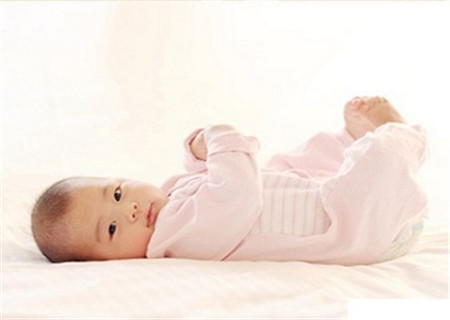1
Can you get pregnant without a period after giving birth?
You can get pregnant without menstruation after giving birth.
Menstrual recovery is a natural physiological phenomenon for women after childbirth. The recovery time is early or late. Early menstruation can occur after the full moon, and late menstruation will not resume until the baby is 1 year old. From a medical point of view, according to the intrauterine According to the tissue morphology of the membrane, it may be possible to ovulate as early as 33-42 days postpartum. In addition, 6 weeks postpartum, the corpus luteum after ovulation can also be observed. Postpartum, ovulation is first restored, and then menstruation occurs. If you don't have a period when you don't have a period, if you don't use contraception and you happen to ovulate, you may get pregnant. So, if you don't get your period after giving birth, you can get pregnant.
2
Can you get pregnant if you don't get your period after giving birth: When will you get your period after giving birth
For new mothers who are not breastfeeding, menstruation usually resumes within 6-10 weeks after giving birth; while for new mothers who are breastfeeding, the timing of menstrual recovery is extremely variable, and it may be within 2-18 months postpartum. Recovery at any time, an average of 6-8 months, and even some new moms have no menstrual cramps during breastfeeding.
Breastfeeding frequency is also closely related to the time of menstrual relapse. Generally speaking, the more breastfeeding times and the longer the breastfeeding time per day, the later the menstrual rehydration time will be; since the frequency of breastfeeding and the time of breastfeeding will change after the baby starts to add complementary food, the time for the baby to add complementary food will change. The earlier you breastfeed, the less time you need to pump, and the earlier your menstrual cycle will return.
The timing of re-tide varies from person to person. In addition to being affected by breastfeeding, it is also related to the time when the baby starts to add complementary food, the maternal age, the recovery of ovarian function and endocrine function, etc.
3
Can you get pregnant if you don't have a period after giving birth: When will you ovulate after giving birth
According to the tissue morphology of the endometrium, it may be inferred that the ovaries may ovulate as early as 33-42 days after delivery. In addition, the presence of the corpus luteum after ovulation was also observed at 6 weeks postpartum. Therefore, without breastfeeding, menstruation usually occurs within 6 to 8 weeks postpartum. 40% of mothers without breastfeeding resume ovulation at 6 weeks postpartum; by 8-12 weeks postpartum, only 35% of mothers have not resumed ovulation and menstruation. about 25% of breastfeeding mothers will resume ovulation and menstruation at 12 weeks postpartum, and most breastfeeding mothers usually do not fully resume ovulation until 18 weeks. However, it is sometimes difficult to clinically determine the exact time of the first menstrual period postpartum, and a small number of women experience light to moderate intermittent bleeding immediately after delivery. Therefore, it is necessary to pay attention to contraception even if there is no menstrual period after giving birth. Among them, women still need to shoulder the burden of breastfeeding their children. Postpartum contraception should be based on the premise that it does not affect the secretion of milk and the quality of milk. At this point, the husband should take more responsibility, mainly using male contraception.
4
Can you get pregnant if you don't have a period after giving birth: what factors are related to the timing of your period after giving birth
1. Same room
Many mothers have sex with their husbands shortly after giving birth, thinking that there will be no pregnancy if they do not ovulate at this time, but they do not know that having sex too early will harm the body and affect the normal recovery of the aunt.
2. Your own situation
Every mother's body is different. Some women have their menstrual cramps shortly after giving birth, but others take a long time to have their menstrual flow, and even the menstrual flow is disordered. Therefore, mothers need to learn to take care of themselves and take a balanced nutrition, so as to ensure that the aunt returns to normal.
3. Breastfeeding
If the mother has been breastfeeding, then the timing of the onset will be relatively delayed.
5
Health Tips
Many new mothers and new fathers think that they will not get pregnant if they have not yet menstrual periods. This is a wrong view. After giving birth to a child, women should take appropriate contraceptive methods in their sex life, regardless of whether they have menstrual periods or not. Generally wearing condoms, contraceptives should not be taken, because it is not good for the baby to breastfeed. After 42 days of vaginal delivery, an IUD can be placed.












